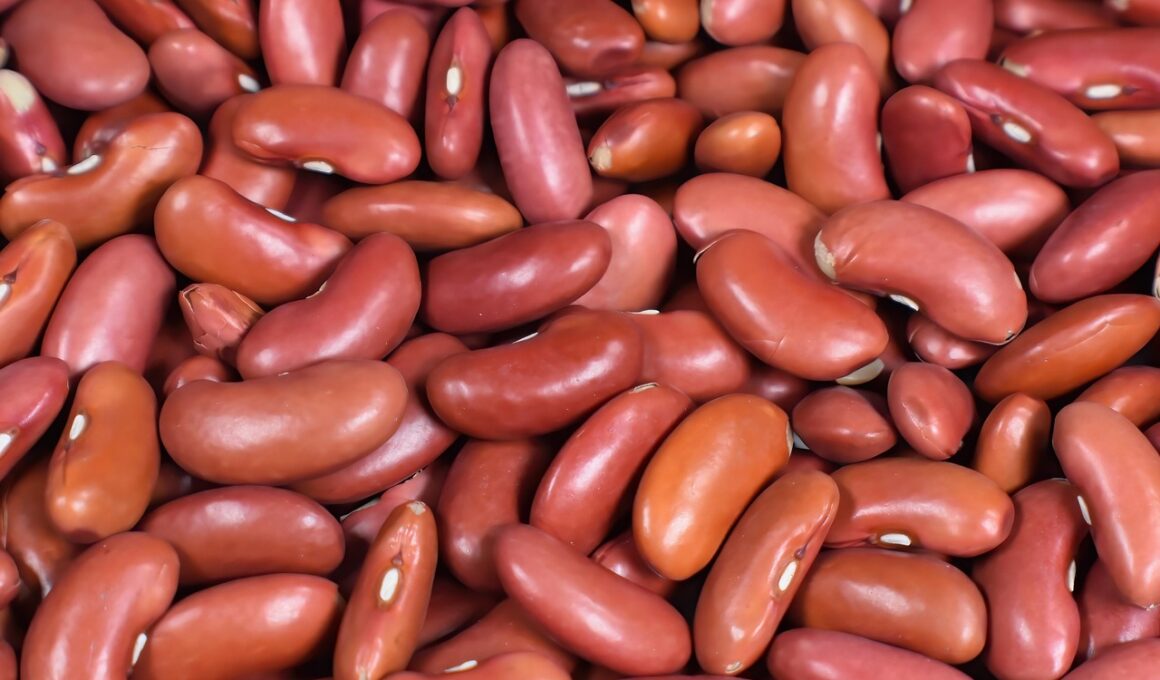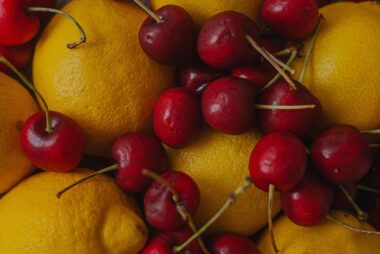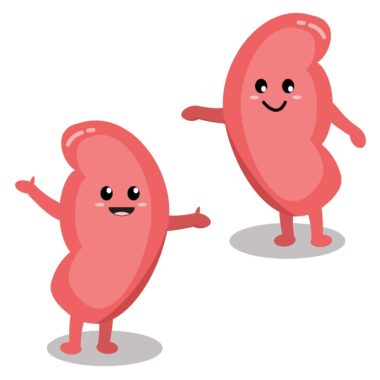The Science Behind Kidney Cleansing Diets Explained
The kidneys are vital organs responsible for filtering waste products from the blood. They play a crucial role in maintaining fluid and electrolyte balance within the body. A kidney cleansing diet aims to support kidney function and promote overall health. This diet typically involves consuming nutrient-dense foods that promote detoxification of the kidneys and urinary tract. Foods like cranberries, lemons, and cucumbers are rich in antioxidants and help to flush toxins. Additionally, drinking plenty of water is essential to support the kidneys in their cleansing process. Increasing water intake helps to dilute substances in the urine, thus reducing kidney stones and infections. The incorporation of specific herbs and supplements, such as parsley and dandelion root, is believed to enhance kidney function. These natural ingredients can help eliminate toxins and encourage the flow of urine. However, it is essential to consult a healthcare professional before starting any new diet, especially for those with existing kidney conditions. Therefore, understanding the science behind these diets is crucial for maximizing their benefits while maintaining overall health.
Key Benefits of Kidney Cleansing Diets
Kidney cleansing diets offer various benefits that can contribute to improved kidney function. One key benefit is the reduction of the accumulation of toxins, which can lead to kidney disease over time. By consuming specific foods and staying hydrated, individuals may experience better kidney health. Another advantage is the potential for improved energy levels. Fresh fruits and vegetables, commonly found in these diets, provide essential vitamins and minerals that energize the body. Furthermore, kidney cleansing diets can assist in weight management. A balanced diet that promotes kidney health is typically lower in unhealthy fats and sugars, making it easier to maintain a healthy weight. Individuals engaging in these diets often report experiencing fewer urinary tract infections, as certain foods are known to inhibit the growth of bacteria. Additionally, these diets encourage a holistic approach to wellness, emphasizing the importance of nutritious food choices and hydration. They can foster lifestyle changes that extend beyond kidney health, leading individuals to adopt healthier eating habits overall. Hence, the cumulative benefits of such diets can significantly enhance overall well-being.
It’s important to consider certain foods that are beneficial for kidney cleansing diets. Some of these include watermelon, which is high in water content and serves as a natural diuretic, promoting healthy urine flow. Other additions to consider are beets, as they are rich in antioxidants and can help reduce inflammation in the body. Incorporating garlic into meals is another excellent idea since it has compounds that detoxify the kidneys and boost their performance. Also, foods rich in potassium like bananas and sweet potatoes help maintain electrolyte balance and support kidney function. On the other hand, it’s crucial to avoid high-sodium foods. Processed foods and snacks often contain excessive sodium, which can strain the kidneys. Refined sugars should also be minimized, as they contribute to inflammation. Thus, this diet emphasizes whole, unprocessed foods. Keeping blood pressure in check can also lower the risk of kidney damage. Involving these strategies in daily meals can lead to a significant improvement in kidney health, ensuring the filtering and elimination processes remain optimal for overall body health.
Hydration and Its Importance
Staying hydrated is one of the most critical aspects of kidney cleansing. Adequate hydration is essential for the kidneys to function efficiently, as it helps to flush out toxins and waste. Drinking sufficient water daily dilutes the substances in urine, which can prevent the formation of kidney stones. Herbal teas, especially those made from cleansing herbs, can also contribute to hydration and improving kidney health. It’s essential to choose caffeine-free options because high caffeine levels may adversely affect kidney function. In addition, infusing water with fruits like lemon or berries can make hydration more enjoyable while adding beneficial nutrients. Incorporating hydrating foods into the diet can also be a great way to boost hydration. Foods such as cucumbers, lettuce, and oranges have high water content and can supplement daily fluid intake. It’s important to monitor fluid intake, especially if you have existing kidney issues, as some conditions may require fluid restrictions. However, for most individuals aiming to cleanse their kidneys, increasing hydration encourages optimal performance and health, which contributes to a balanced functioning organism.
A kidney cleansing diet should also involve regular monitoring of one’s health, particularly kidney function. This includes tracking urine output and signs of dehydration. Regular medical check-ups are essential to ensure that the diet is not negatively impacting health. Engage in conversations with healthcare providers for tailored advice and support. Additionally, understanding the signs of kidney distress is crucial. Symptoms like fatigue, edema, and changes in urination patterns may indicate potential problems. Consulting a doctor when experiencing these symptoms ensures timely interventions. It is also advisable to tailor a kidney-cleansing diet based on individual preferences and restrictions. Consider any food allergies or intolerances before making changes. Integrating these varieties ensures that meal plans remain enjoyable and sustainable. Keeping a food diary can be an effective strategy for monitoring what works best. Pay attention to changes in energy levels or overall well-being following dietary adjustments. By focusing on each of these aspects, one can make more informed choices. Careful monitoring ensures the diet’s effectiveness, maximizing the potential benefits for kidney health while enjoying the journey.
Supplements for Kidney Cleansing
There are various supplements available that can support kidney cleansing diets. These supplements can be beneficial in enhancing the body’s innate detoxification processes. Among the popular choices are probiotics, which can help maintain gut health. A healthy gut microbiome is linked to overall well-being, affecting various bodily functions, including the kidneys. Another useful supplement is Omega-3 fatty acids, which help reduce inflammation throughout the body. These fats can be found in fish oil, flaxseed oil, or algae. The inclusion of vitamin C has also shown benefits since it acts as a strong antioxidant, supporting kidney health indirectly. However, it is vital to use supplements judiciously. Over-reliance on them could potentially lead to toxic build-up or undesired effects. It’s always best to obtain nutrients primarily from whole foods, which provide additional health benefits rather than relying solely on supplements. Thus, consulting with a health professional regarding appropriate dosages is essential. A balanced approach ensures that individuals receive adequate nutrients while minimizing risks associated with supplementation. Integrating supplements carefully can enhance the effectiveness of kidney cleansing.
Lastly, successful kidney cleansing diets rely on a holistic lifestyle approach. Besides dietary adjustments, regular physical activity plays a crucial role in aiding the body’s detoxification processes. Exercise promotes blood circulation, enhances nutrient absorption, and supports waste elimination through sweat. Incorporating aerobic exercises, like walking or swimming, along with flexibility and strength training, can enhance overall health. Adequate sleep is also vital for bodily recovery and repair, including kidney function. Aim for 7-9 hours of quality sleep each night to promote optimal health. Stress management is another essential factor contributing to kidney health. Practices like yoga and meditation can alleviate stress, improving well-being. Consider establishing a daily routine that includes these practices. Overall, it rounds out a well-rounded approach to kidney cleanness. Having a supportive network can also enhance motivation and adherence to dietary changes. Engaging with friends, family, or online communities can provide encouragement and shared experiences. Thus, integrating this comprehensive approach ensures long-term success in maintaining kidney health and achieving desired cleansing outcomes, leading to an overall sense of vitality.
The kidneys are vital organs responsible for filtering waste products from the blood. They play a crucial role in maintaining fluid and electrolyte balance within the body. A kidney cleansing diet aims to support kidney function and promote overall health. This diet typically involves consuming nutrient-dense foods that promote detoxification of the kidneys and urinary tract. Foods like cranberries, lemons, and cucumbers are rich in antioxidants and help to flush toxins. Additionally, drinking plenty of water is essential to support the kidneys in their cleansing process. Increasing water intake helps to dilute substances in the urine, thus reducing kidney stones and infections. The incorporation of specific herbs and supplements, such as parsley and dandelion root, is believed to enhance kidney function. These natural ingredients can help eliminate toxins and encourage the flow of urine. However, it is essential to consult a healthcare professional before starting any new diet, especially for those with existing kidney conditions. Therefore, understanding the science behind these diets is crucial for maximizing their benefits while maintaining overall health.





